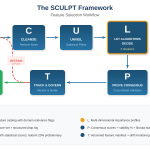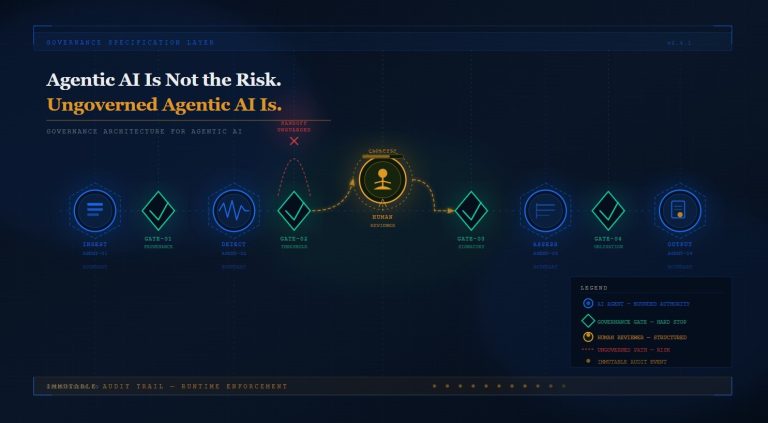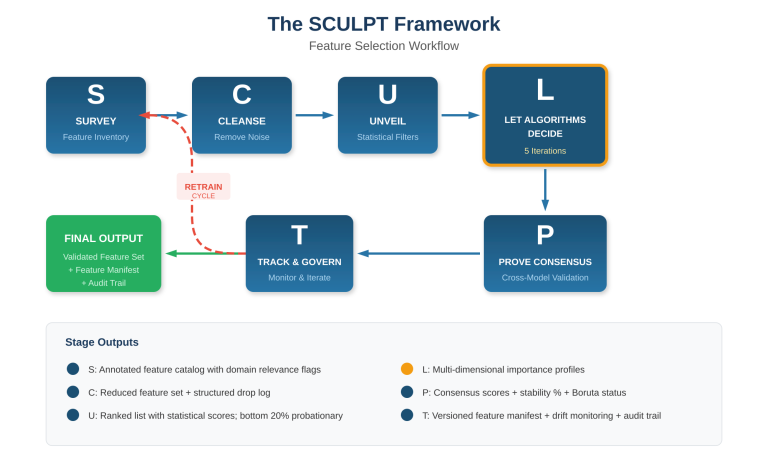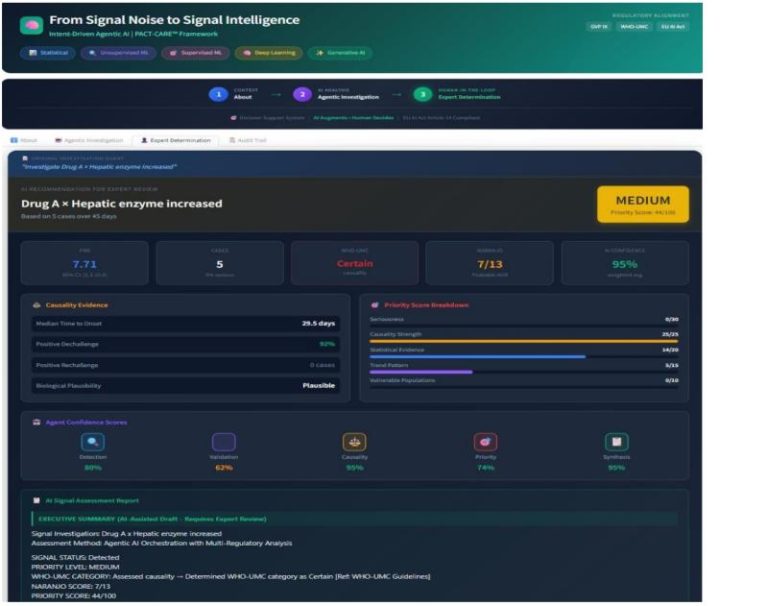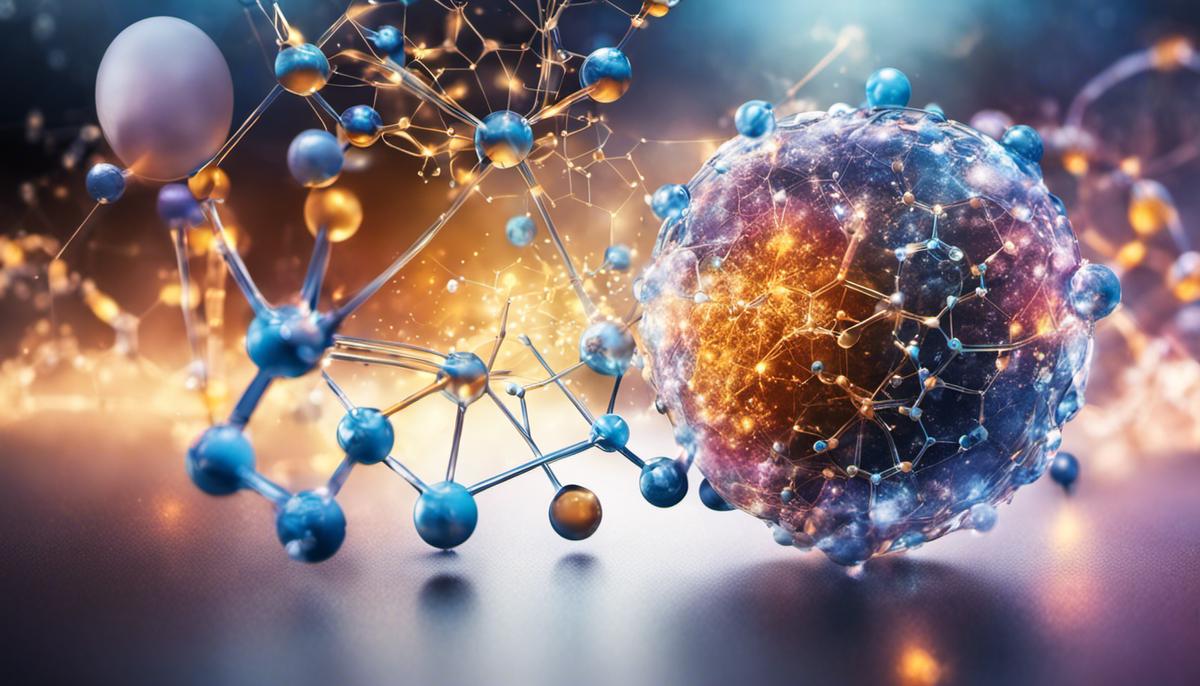
Artificial Intelligence is a powerful tool with transformative potential for various fields, including Chemistry, Manufacturing, and Control (CMC). AI can learn, understand, and apply knowledge, correct errors independently, and make decisions based on the dataset provided. Two main types of AI include Machine Learning (ML), where systems learn and improve from experience without explicit programming, and Deep Learning (DL), where systems try to mimic the human brain to interpret data such as images, sound, and text.
From my first-hand experience working in the CMC domain, passion for process excellence, and motivation to cross-pollinate knowledge from various disciplines, and learning from experience with different functional areas within Biotech and Pharma, I have been thinking about writing about possibilities to innovate via transformative power of AI in CMC – from its intricate applications in chemistry and manufacturing to its crucial role in control systems and other future opportunities in R&D.
From the atomic universe of molecular interactions to the macrocosm of production processes, AI’s omniscient gaze and unerring precision have the potential to unravel complexities, optimize operations, and forecast challenges with unprecedented insight.
Let’s begin with understanding the power of AI in CMC and potential challenges.
AI can serve various roles in CMC, especially in enhancing productivity and efficiency. In the world of chemistry, AI can help predict chemical reactions, assist in designing chemical synthesis plans, and even predict the properties of new chemical compounds. AI can help chemists save time and resources and avoid potentially dangerous trial-and-error methods. AI can optimize the production process in manufacturing by improving scheduling and predictive maintenance, thereby reducing breakdowns and minimizing downtime. It can also predict defects and provide solutions for production problems, thanks to its ability to learn from patterns and deviations in operational data. For control aspects, AI can be used in quality control, ensuring products meet set standards and specifications and identifying any variations. It can also provide real-time monitoring and control, optimizing resource usage and reducing waste.
AI can increase efficiency and productivity, reduce waste and costs, improve accuracy, and the potential for new insights and innovations. AI’s pattern recognition capacity can also help identify potential issues or opportunities humans might need help to perceive readily. However, implementing AI in CMC is challenging. Data security and privacy are primary concerns, as AI systems need vast datasets to operate effectively. There is also the risk that the AI system may make incorrect decisions due to bias in the dataset or inaccurate interpretation of the data. Adopters of AI must manage risks carefully to ensure AI’s effective and safe use in CMC. Another challenge includes high initial investment in the necessary technology and talent.
Additionally, there may be resistance from employees due to fears of job displacement by AI. Any transition to AI needs to be managed by the leaders tasked with the AI adoption with clear communication, training, and re-skilling to ensure employee buy-in.
Most importantly, it is essential to acknowledge that while AI can assist in CMC processes, it must maintain the fundamental human understanding and intuition in every aspect of its usage. Hence, a balanced approach between human expert involvement and AI automation may lead to the most productive and effective outcomes.
Though quoted in the context of digital health, this quote also applies here in the CMC context.
“In digital health, bringing our consciousness and feelings to AI algorithms is necessary to build empathetic artificial intelligence solutions and avoid immersing artificial empathy in clinical processes” – Sudhir Shandilya.
Embracing the AI Revolution in CMC
When implemented correctly and responsibly, AI technology can drive tangible enhancements in productivity, efficiency, and capacity for innovation. However, we must recognize and address challenges due to the exponential advancements in AI that occurred in a very short time without oversight on ethics:
- Safeguarding data privacy.
- Securing a reasonable return on investments.
- Garnering employee understanding and acceptance.
- Preserving required human supervision is among the severe considerations.
However, as technology continues to improve and become more universally accessible, the application of AI within CMC processes is bound to become an industry norm, delivering substantial advantages across various industries worldwide.
Use of AI in Chemistry
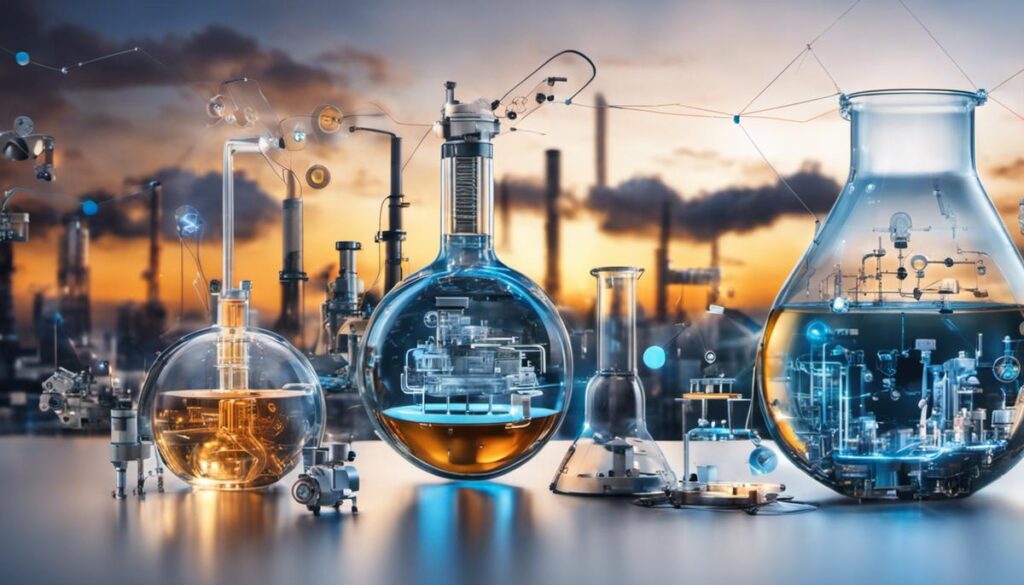
AI and Chemistry: Revolutionizing Molecular Designing
Recent advancements in artificial intelligence (AI) technology have brought about significant change, specifically within the chemistry sphere and, more precisely, in molecular design. By harnessing the power of deep learning and machine learning algorithms, AI can accurately predict a molecule’s characteristics, such as its reactivity and stability. Consequently, this predictive ability allows chemists to enhance the efficiency of the drug design and development process. Chemists can now use these forecasts to devise new molecular structures far more efficiently than traditional means. AI tools draw on extensive databases containing the architecture of various chemical elements and their properties to create new molecules with the targeted features. This approach contributes to a reduction in experimental cost and time.
The Role of Quantum Computing in Chemistry – Aided by AI
When coupled with AI, quantum computing offers immense chemistry capabilities. They enable high-level simulations and calculations that aid in understanding the fundamental principles of complex chemical reactions. Quantum computing, assisted by AI, can simulate molecules’ physical and chemical behavior, providing detailed insights into chemical reactions and mechanisms that had been impractical or impossible to research with traditional laboratory techniques—the impact of quantum computing to accelerate drug discoveries and development could result in lowering the overall cost and waste in the drug development lifecycle. This cost reduction should further result in lower prices of treatments to patients.
Predicting Chemical Reactions Using AI
AI can also be harnessed in predicting the outcomes of chemical reactions. AI tools can use machine learning algorithms to anticipate reaction results based on patterns and correlations within existing chemical data. Predictive models can be developed to forecast the products of complex chemical reactions, facilitating scientists in backtracking the optimal route to reach a desired molecular target irrespective of the area of applications – Synthetic (small molecules) or Biologics (large molecules/proteins). This consequence prediction reduces the trial-and-error approach in the lab, thus saving both time and resources.
The Impact of AI in Drug Discovery Processes
AI has a profound impact on the drug discovery process. Machine learning algorithms are used to analyze biological and chemical structures, establishing correlations and patterns. These AI models provide a faster way to identify potential drug candidates by predicting how different chemical structures will interact with other targets in the body. This helps design drugs that are more effective and have fewer side effects. Moreover, AI can significantly speed up the drug discovery process by enabling “virtual screening,” a process that digitally simulates the impact of a drug molecule on a disease, thereby reducing the need for physical testing.
The Future of AI in Chemistry
In the future, AI is expected to play a more critical role in the Chemistry segment of CMC. As technology evolves, AI has the potential to handle many of the current limitations and challenges. AI models are improving and becoming more sophisticated, allowing more complex, real-time predictions to accelerate further chemical and drug discovery, design, and synthesis. AI can catalyze significant drug discovery, materials science, and biochemistry breakthroughs.
By incorporating AI, scientists can reduce the time required for gene sequencing, increasing their production rates and accuracy.
AI in Manufacturing
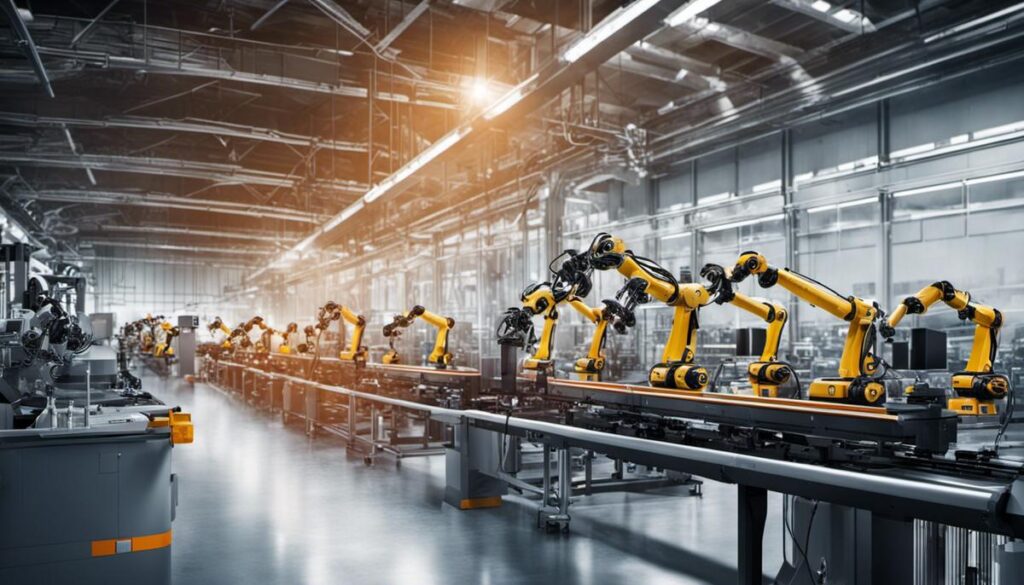
Use of AI in Manufacturing Processes within CMC
In the manufacturing facet of CMC, AI exhibits considerable potential for whole-scale transformation. AI ushers in a new era of effectiveness and precision by optimizing manufacturing workflows, enhancing product quality, boosting production efficiency, and even facilitating predictive maintenance. Whether through machine learning, predictive analytics, visual quality inspections, or other AI-enriched tools, manufacturers can anticipate a remarkable upgrade in their production dynamics.
Streamlining Manufacturing Processes
Machine learning, a subset of AI, is critical in augmenting manufacturing processes. Machine learning algorithms can analyze complex data sets and identify patterns. These patterns are then translated into insights that guide decision-making, allow real-time adjustments, and help optimize workflows. This applies directly to manufacturing operations where consistent product quality is vital.
In addition, AI can also augment process automation. Intelligent machines equipped with AI capabilities can perform tasks more rapidly than humans while maintaining or even enhancing precision and output quality.
Enhanced Product Quality and Production Efficiency
Through automated, real-time visual inspection systems, AI can detect defects and discrepancies that the human eye might miss. It can also monitor the entire production process, fine-tuning it to reduce waste and increase efficiency.
AI can create predictive quality models to identify the key factors affecting quality and provide early warnings about potential issues. These models constantly learn and adapt from incoming data, improving their predictive capabilities and saving precious time and resources.
Predicting Maintenance Needs
Predictive maintenance is another significant benefit that AI brings to the manufacturing sphere. By analyzing operational data, machine learning algorithms can predict equipment failures before they happen. This mitigates downtime and optimizes the maintenance schedule, extending the lifespan of machinery and reducing costs.
Real-World Examples of AI in Manufacturing
One instance where AI technology has been successfully deployed in the manufacturing industry is in predictive maintenance at Siemens. The company uses neural networks to monitor and predict system anomalies, reducing downtime and maintenance costs.
General Motors also employs AI for visual inspections of welded parts. Their system scans and identifies anomalies in the welds up to 10 times faster than human inspection.
AI in Control

The Impact of AI on Process Control
One significant way AI can benefit the CMC is by improving process control. AI-powered systems can supervise every stage of the chemistry, manufacturing, and control procedures in real-time. This capability not only raises efficiency but also minimizes the risk of errors. Advanced machine learning algorithms allow these systems to continuously learn from the process, providing a deeper insight into the production nuances and enabling more knowledgeable decisions regarding control mechanisms. Areas of potential improvement include optimizing the operation sequence, fine-tuning procedure parameters, or eliminating unnecessary steps in a process. Additionally, AI’s predictive features can be leveraged to anticipate and correct process deviations before they even occur.
AI in Quality Control
Quality control is a critical aspect of the CMC process, and AI can play a crucial role in this area. Sophisticated AI algorithms can analyze data from multiple sources to detect potential issues early in the production lifecycle, reducing the likelihood of product defects and maintaining high-quality standards. AI can also help reduce waste by identifying the materials required for each production run, reducing costs and environmental impact. Furthermore, machine learning can help construct predictive models for each step of production, reducing uncertainty and variability ultimately resulting in a more consistent product.
AI in Logistics Management
AI has demonstrated its potential in streamlining inventory management, distribution, and overall logistical operations in the CMC. AI-based tools can forecast demand patterns, optimize inventory levels, and even predict disruptions or delays in the supply chain. Real-time tracking of materials and finished products, coupled with predictive analytics, can help to design more efficient supply chain routes, reduce shipping times, and improve customer satisfaction.
AI in Regulatory Compliance
Compliance with regulations is a significant concern for the CMC. AI can simplify compliance by gathering, analyzing, and structuring all necessary documentation efficiently and accurately to adhere to predefined standards. Additionally, AI technology can automatically review all compliance-related documents to identify and rectify discrepancies, reducing non-compliance chances. AI-powered systems can also track changing regulations and update processes to stay compliant.
AI in Predictive Maintenance
The use of AI also extends to predictive maintenance within the CMC area. Through continuous monitoring and analysis of equipment data, AI can identify patterns and predict failures before they happen. This leads to better allocation of maintenance resources, reduced equipment downtime, and decreased disruption to manufacturing processes.
Another big challenge within CMC is the ability to connect and automate data capture from various and often fragmented families of instruments. Automating data collection from experiments via equipment is often challenging because of varying and proprietary interfaces from different vendors. Generative AI could help write interfaces for data collection that could adapt to the underlying proprietary interfaces in real time and expedite equipment integration.
AI in Data Analysis
AI’s ability to quickly and accurately analyze vast amounts of data is revolutionizing the CMC. Machine learning models can spot trends, identify risks, and suggest improvements faster than humans. This allows companies to quickly understand where inefficiencies lie in their process and take swift corrective action.
Embracing AI adoption in the CMC offers immense promises to enhance productivity, quality of products, and efficiency of operations. AI’s potential extends to various applications, including process control, quality assurance, regulatory compliance, and logistics management. By predicting, analyzing, and optimizing each phase of the CMC process, AI is an integral part of the current CMC industry rather than just a tool for future enhancement.
Artificial Intelligence (AI) will significantly transform Chemistry, Manufacturing, and Control (CMC) operations in the coming years. With the introduction of AI technology, CMC can look forward to a substantial boost in accuracy, operational efficiency, and seamless workflow. AI’s potential to automate CMC processes decreases the scope of human errors while increasing productivity. For example, AI can significantly enhance aspects like formulation optimization, manufacturing method improvement, forecasting product quality, and yield in chemistry.
Despite the significant benefits, AI integration in CMC can pose particular challenges. Data privacy and security are primary concerns, followed by legal and ethical considerations. AI systems require vast amounts of data to function with accuracy and efficiency. These data points can be prone to breaches and misuse if not adequately secured. AI also presents ethical considerations around reliability and accountability. For instance, who should be held accountable when AI makes a mistake?
Another practical challenge is the technical capacity and infrastructure. Adopting and implementing AI technologies require robust technological infrastructure, a substantial investment, and a skilled workforce, which may only be available in some organizations.
Latest AI and Machine Learning Trends Impacting CMC
Several AI and machine learning trends are impacting the CMC. Machine learning models can predict chemical reactions, analyze components, and optimize manufacturing algorithms. Predictive maintenance utilizing AI can forecast equipment failures, enhancing operational efficiency. Natural language processing and image recognition can provide valuable insights from unstructured data, further aiding decision-making processes.
Deep learning, a subset of machine learning, can enhance data analysis and decision-making in complex scenarios in CMC. Reinforcement learning, where algorithms learn to make decisions by trial and error, can help optimize complex chemical or manufacturing processes.
The convergence of AI, data science, and chemistry promises a future where AI technologies will be more prominent in CMC. AI can be used to design more efficient chemical synthesis strategies, forecast the life cycle of devices, improve quality control, reduce waste, and increase process efficiency.
In manufacturing, targeted machine learning algorithms can improve supply chain efficiency, forecast customer demand, and optimize energy consumption. AI can also support more informed and accurate decision-making, potentially overhauling current operational frameworks across the CMC landscape.
By transforming raw data into actionable insights, AI also provides avenues for strategic differentiation and innovation in the hyper-competitive global CMC area. It’s a compelling synergy that promises robust, resilient, and adaptive CMC practices that meet the ever-evolving consumer and marketplace needs.
As we stand at the precipice of an AI-powered revolution in CMC, it becomes imperative not just to harness this powerful tool but also to reflect on the potential challenges and formulate adaptations at an intricate level. While numerous applications in chemistry, manufacturing, and control have been highlighted, this marvel of technology still holds vast untapped potential that can propel us toward an era of innovation, efficiency, and superior quality. From ground-level operations to high-level logistics, AI’s presence can transmute every link in the CMC chain. Adopting a future-focused vision, anticipate blooming advances in AI to comprehensively reshape the scaffold of CMC— evolving it into a hyper-efficient, precise, and intelligent CMC of the future.


